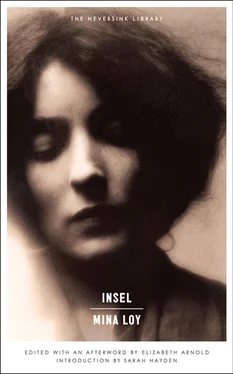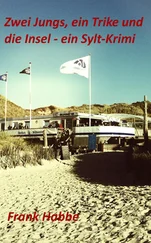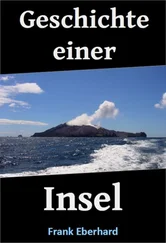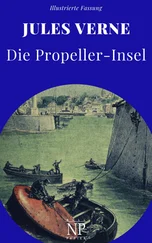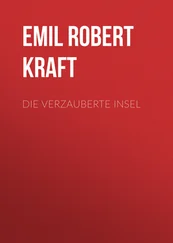“For God’s sake, don’t drink anything out of any kind of bottle in that flat,” I wrote him immediately. “It might kill you.”
“Dear Mrs. Jones: However do you think I am comporting myself in your home,” Insel answered. “Were there thirty bottles of the finest schnapps I should not touch them. Rest assured you will find your apartment exactly as you left it.”
He sounded quite comfortably settled. I had also written him to get my charwoman to clean his suit with odorless gasoline at my expense, and inquired how much money he had left.
“Your suggestion for my suit is most kind — however, I am convinced that it is only on account of the dirt in it that it still holds together.”
He had, he said, enough money to last him for a “little” week.
We had agreed that I should come every few days for a dressmaker’s fitting at the further end of the flat where it would not disturb him. When I did go, a bewildered concierge informed me, “Madame, the artist who was to live in your apartment never came.”
“That only means he has not yet been ‘turned out,’ ” I explained to her, while to myself I reflected, “You will find your apartment exactly … the monkey!”
I felt that the end of his little week was no longer my concern, and I forgot all about him.
I would run into Paris for the dressmaker, a tea, a dinner and back to my little hotel in St. Cloud again, until at last the time drew near for exporting pictures — among them were to be included some of Insel’s.
“Pictures, drawings, three o’clock,” I wired him. At a quarter past, he had not arrived and I went to tea with a friend who hailed me from the courtyard, leaving a note on the door, “Will be back shortly.”
When I returned the place was different — in the smoothed out air there was a suspicion of a collapse in time. As if by a magnet, I was drawn into the studio and up to the dark oak table. Upon it lay a flat packet. I could have sworn it emitted a faint phosphorescence that advanced from all the rest of the room. The wrapping paper was so strikingly creaseless it looked unusual. It had in some inexplicable manner become precious as ivory; its squareness was instinctively exact as the hexagons of wasps.
“He has left the drawings,” I supposed, almost reluctantly undoing this magnetic focus of an uncanny precision. But once unfolded, I found it contained only a shabby block of writing paper that had been left lying there and from which I had torn the note I left for him.
“Did you find anything?” he asked when, later having resuscitated from the moribund state in which he preferred to arrive, he was able to articulate.
“Yes. What on earth—?”
“I wrapped it up,” said Insel — an enormous intention fixed in his eyes.
It was at this moment that, for me, Insel, from a seedy man, dissolved into a strange mirage, the only thing in the world at that time to stir my curiosity.
On his arrival with the pictures he had appeared the phantom of himself as I had seen him last. He had so weakened, become so transparent.
Deeply bowed, he clutched his feeble fist in the emptiness where his stomach should have been. From this profound concavity arose a dying whimper of, “Water— aspirine ,” as out of the abdominal void rode the unclenching fist — his tremulous fingers, hovering over the bureau, grasped a cigarette.
“Well, you’re in a nice state,” I taunted him to cover my alarmed compassion. “Why didn’t you write?”
He gulped his aspirine as if to alleviate a death rattle. “I did write.”
“Yes, a comic strip. I found my flat exactly as I left it.”
“I know,” said Insel, gently abashed. “I ought to have told you ‘I am not here.’ ”
“Even the least of philanthropists,” I laughed, “has sensibilities — I thought I had been intrusive. You see, Insel, any possible gesture in the face of poverty must inevitably be insolent, its very necessity — in not being outs — makes poverty so aloof.”
“And I thought you were angry because I mentioned money.”
“I had told you to mention money. But all my sympathy for you was buried under that bunch of cheap flowers I put here to welcome the lonely clochard .”
“But, after all, I have been here nearly every day,” he almost sobbed, “to look for you. I could never find you. I knew when you had been here for where you trod there lay little fragments of stuff. I could trace your movements by the pins you shed on the floor. Think what it was like — to seek after a woman, a vanishing woman, and in her stead, to find nothing but pins,” he implored. Then brightening, “I picked them all up. Look,” said Insel, hurriedly reversing the lapel of his jacket. On the underside stuck in rows as precise as in packages from the factory, were my dressmaker’s fallen pins. He dropped the lapel into place again as if too long he had bared this precious hoard of his compelling exactitude.
With an interminable cautiousness Insel had revived. “ Ich bin nicht fromm —I am not pious,” he mused, deeply introspective. “And yet how I have prayed, I prayed,” he burst out, a blind agony falling upon his eyes, “I prayed that you would come back!”
“You seem to have been thinking about me a good deal — hadn’t you any steak?”
“I never cease thinking of you,” he muttered, as if fearful I should overhear — and aloud, “None,” he answered flatly yet without reproach.
As mediums on becoming professional, obliged to continuate an intermittent condition, lapse to the most lamentable dupery, Insel would actually plagiarize his innate mediumistic quality of which he appeared to be but partially conscious.
It would seem unnecessary after the intrinsic wizardry of his simple packet to resort to the untenable mystery of a lie. Yet he did.
Awestricken, solemn, he recounted to me that while I had, as it were, struck myself off his menu, Mlle Alpha had sent him a card to know how he was getting on.
“The world is populated with people anxious to know how I am getting on. But when I tell them— the world immediately depopulates! I wrote her in answer, ‘Am starving to death except for a miracle — three o’clock Tuesday afternoon will be the end.’ —And then your telegram! for three o’clock. Today is Tuesday.
“Of course she did not answer,” he commented, “I had rather thought she might be good for fifty francs. Nobody ever sends one fifty francs,” he ended despondently.
“Oh, what’s the matter with you, Insel? That girl has more sex appeal than almost anyone in Paris. And all your reaction is that she might be good for fifty francs. I never could interpret, until I saw her, the French, Elle n’a pas froid aux yeux —the Alpha’s eyes are volcanic. All the men are in love with her.”
“Not I,” he boasted.
“No-o? I should say that clochards were hardly in her line.”
“Grade — exactly,” Insel concurred as if relieved of a responsibility.
Characteristically, after swearing he would ask her for his card as proof of a miraculous coincidence with his usual unconcern in breaking up his plots it was Insel who insisted on my meeting Mlle Alpha whom I knew only slightly.
“FLEISCH OHNE KNOCHEN,” INSEL ESPECIALLY hollow-voiced begged me when I took him to dine. This insistence on boneless pieces of meat was habitual with him.
“Do I look any fatter?” he inquired after he had eaten, as if consulting his doctor.
I thought it best to reply in the affirmative. As a matter of fact the disquieting thing about Insel was that however much food you sunk in him it no more seemed to amalgamate with him than would a concrete mass with a gaseous compound.
Читать дальше
